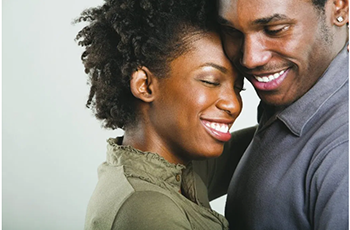News
How to say sorry to someone you hurt (part two)

Last week we highlighted about six tips on how to apologise to someone when you are at fault. Here is the final part.
Your partner’s feelings are always valid
Sometimes, people are too dismissive of how their partner thinks or feels. Imagine your partner comes to you because they feel hurt or upset about something. If you respond with, “you were hurt, I never knew,” it essentially invalidates their feelings.
It doesn’t matter that you didn’t know you hurt them or didn’t realize someone could feel hurt by your action or inactions. What matters is that your partner feels hurt.
You might not understand why they feel that way, but you should say sorry because they are someone you care deeply about.
Get rid of your expectations
In some cases, a spouse will get furious when their apology is not accepted right away. The spouse shows up and apologizes for something, and their partner needs time to process it.
Rather than accept their partner’s apology, the individual gets upset again. You know how you would act or behave in a certain situation, but that does not mean you have any clue about how your partner will actually behave.
If you did something horrible, your partner may not be able to forgive you right away. They may even get angry again when you show up to apologize. You cannot control how someone responds, so get rid of all of your expectations. Whether your spouse wants some space or needs to wait to forgive you, listen to them.
Show your sincerity
After a fight, you need to show your partner that you won’t make the same mistake again. People can often understand when you make a mistake once, but their understanding evaporates if you make the same mistake over and over and over again. Instead of throwing your relationship away because you can’t learn to change, show your partner through your words and actions that you are honestly working to change.
Don’t do it again
If you have managed to apologize and get everything back on track, do not mess it up. Once you have recovered from a fight, it is time to get your relationship in order again. The best way to show that you are genuinely sorry is to never make the same mistake again.
News
Man sentenced to 25 years for robbery at Manso Akwasiso

A 30-year-old man has been sentenced to 25 years imprisonment with hard labour by the Bekwai Circuit Court for his role in a 2022 robbery at a mining site at Manso Akwasiso in the Ashanti South Region.
The convict, Dominic Ofori, also known as Fanta, was arrested on 16th February 2026 after years on the run. He pleaded guilty before the Bekwai Circuit Court to robbery contrary to Section 149 of the Criminal Offences Act, 1960 Act 29, and was accordingly sentenced to 25 years imprisonment with hard labour.
On March 20, 2022, the Manso Adubia District Police received intelligence that a group of armed men from Manso Abodom were planning to attack a mining site at Manso Akwasiso to rob the owner of gold concentrate. Acting on the information, police mounted a coordinated operation and laid an ambush at the site.
At about 5:30 pm the same day, four-armed men arrived at the site, fired indiscriminately, and robbed the miners of their gold concentrate. The police team on surveillance intervened, resulting in an exchange of gunfire.
Three of the suspects, Abu Abubakar, Musah Latif, and Gideon Takyi, sustained gunshot wounds and were pronounced dead on arrival at St Martins Catholic Hospital at Agroyesum. Dominic Ofori escaped at the time but was later arrested and put before the court.
The Ashanti South Regional Police Command has assured the public of its continued commitment to combating violent crimes and bringing offenders to justice.
News
Ashanti police arrest man for publishing false news on TikTok

The Ashanti Regional Police Command has arrested 45-year-old Isaac Boafo, also known as “Duabo King,” for allegedly publishing false news intended to cause fear and panic.
Police said the arrest follows a viral TikTok video in which Boafo claimed that four officers at the Central Police Station in Kumasi engaged in inappropriate conduct with commercial sex workers during night patrols in Asafo.
Officers from the Police Intelligence Directorate (Ashanti Region) apprehended Boafo after receiving intelligence about the video.
During questioning, he admitted to creating the video to attract views and engagement online, and acknowledged that he could not prove the allegations.
Boafo also admitted making comments about the President of the Republic for content purposes and could not defend those statements.
He has been formally charged and is in detention as investigations continue.
The Ashanti Regional Police have warned the public against publishing or sharing false information on social media, noting that such acts can cause fear, panic, and damage reputations.
They said anyone found engaging in similar conduct will face legal action.
By: Jacob Aggrey






